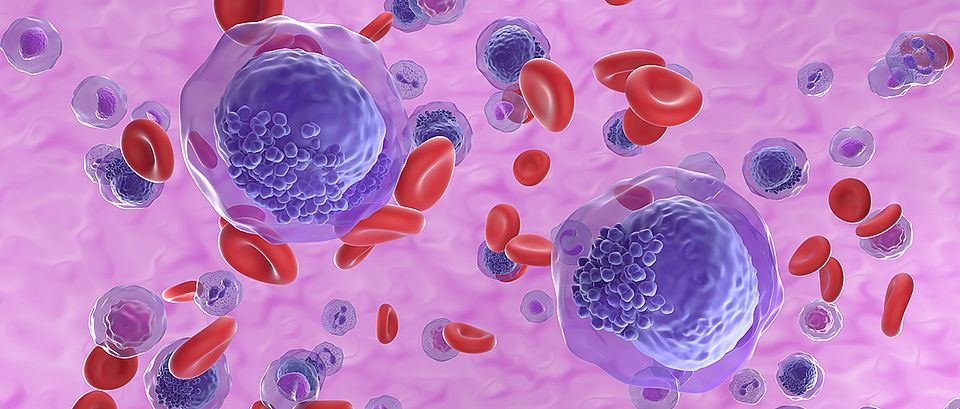/ News, Research
Genome editing to protect therapeutic hematopoietic cells from targeted immunotherapy (Jeker Lab)
When targeting acute myeloid leukemia (AML) with monoclonal antibodies, antibody drug conjugates, T cell engagers or chimeric antigen receptor (CAR) cells, a major challenge lies in avoiding myelotoxicity. This issue arises because many of the surface antigens found on transformed myeloid cells also exist on healthy hematopoietic cells. The Jeker lab has now successfully demonstrated an approach to address this challenge by engineering a single amino acid substitution into the cell surface protein CD123 in hematopoietic stem cells, effectively protecting them from targeted immunotherapies.
Addressing myelotoxicity is a crucial hurdle when targeting AML cells, as most of the surface antigens found on transformed myeloid cells are also present on healthy hematopoietic cells. To overcome this challenge, the researchers led by Romina Marone, Emmanuelle Landmann, Anna Devaux and Rosalba Lepore conducted an in silico screening process to pinpoint protein variants of CD123 that could maintain both structural integrity and functional properties. These variants were carefully selected to preserve CD123's capacity to bind to interleukin-3 (IL-3) and activate downstream cellular signaling pathways. Importantly, they needed to serve as a shield from targeting antibodies or similar antigen-binding components.
Following successful identification and in vitro validation in HEK-293 cells, the researchers demonstrated that these engineered variants protected the cells from immunotherapies such as T cell engagers or CAR T cells. Two of them were subjected to thorough functional evaluation in a hematopoietic cell line and primary human hematopoietic stem and progenitor cells (HSPCs) following genome editing. Both variants were found to be functionally comparable to wildtype CD123. Notably, CD123 epitope-engineered HSPCs successfully engrafted, differentiated normally, and exhibited long-term reconstitution potential in vivo after transplantation into immune-suppressed mice. Furthermore, the researchers did not find any detectable off-target activity in complementary assays.
This innovative approach, also explored recently by other research groups for similar targets, holds the potential to enable precise immunotherapy targeting of tumors while concurrently restoring a functional hematopoietic system. The same principle can be applied to other targets and is also the scientific foundation for the success of Cimeio Therapeutics, the recently established startup by Lukas Jeker and colleagues (Cimeio News).
Social Media

